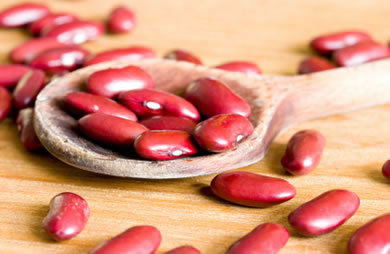Do alarm bells go off in your head when you see a carbohydrate-rich food? If you’ve ever felt guilty after eating bread, pasta, or potatoes, you’re not alone. With so many low-carb, no-carb, and keto diets making headlines, it’s easy to think that carbs are the enemy.
But here’s the truth: carbohydrates aren’t bad — in fact, your body needs them. The key is knowing which kinds to enjoy regularly and which to limit.
How Carbohydrates Actually Work
Carbohydrates are found in foods like fruits, vegetables, beans, grains, and dairy — even in small amounts of sugar and honey. They’re your body’s preferred source of energy, fueling your brain, muscles, and central nervous system.
Here’s how your body uses them: carbohydrates are broken down into glucose (sugar), which enters your bloodstream. Your pancreas then releases insulin, which helps move glucose into your cells for energy. Extra glucose is stored in the liver and muscles as glycogen or as body fat when those stores are full.
The speed at which carbs affect your blood sugar depends on many factors: the type of carbohydrate, its fiber content, how it’s prepared, what you eat it with, and even your stress level or activity that day.
The Three Types of Carbohydrates
-
Simple Carbohydrates: One or two sugar units — found naturally in fruit and milk or refined in sweets and soda.
-
Complex Carbohydrates: Longer sugar chains found in foods like whole grains, beans, and starchy vegetables.
-
Fiber (Non-Digestible Carbohydrates): Found in plant foods. Fiber can’t be digested, but it supports gut health, blood sugar balance, and fullness.
Not All Carbs Are Created Equal
Carbohydrates fall into two broad categories: healthy carbs and less healthy carbs.
Healthy Carbs
These foods give you energy and important nutrients:
-
Fruits and vegetables – Packed with vitamins, minerals, fiber, and water.
-
Legumes – Beans, lentils, peas, and soy provide complex carbs, protein, and fiber.
-
Whole grains – Brown rice, oats, quinoa, and whole-wheat bread provide lasting energy.
-
Dairy – Milk and yogurt contain natural sugars plus calcium and protein.
Less Healthy Carbs
These foods provide calories but little nutrition:
-
Added sugars – Table sugar, syrups, honey, and sweetened drinks.
-
Refined grains – White bread, pastries, and pasta made from refined flour.
-
Deep-fried foods – French fries, chips, and breaded fried vegetables.
What Happens on a Very Low-Carb Diet
Cutting carbs too drastically can have side effects. When your body runs low on glucose, it starts breaking down protein and fat for energy, creating ketones. Over time, this can lead to fatigue, headaches, bad breath, constipation, and dehydration. Long-term, very low-carb diets can increase the risk for nutrient deficiencies, heart disease, and digestive issues. While short-term carb reduction can lead to weight loss, balance and sustainability are key.
How to Eat Carbs the Smart Way
If your goal is to manage weight and feel energized, focus on the right types and portions of carbohydrate-containing foods.
Whole Grains & Starchy Vegetables – 4 to 5 servings per day (≈15g carb/serving)
Examples: ½ cup cooked brown rice, oats, or whole-grain pasta; 1 small potato or sweet potato; ½ cup beans or lentils; 1 slice whole-grain bread or ¾ cup cereal.
Fruit – 2 to 3 servings per day (≈15g carb/serving)
Examples: 1 small banana or apple; 1 cup berries or melon; ½ cup diced fruit or ½ cup 100% fruit juice.
Dairy – 1 to 2 servings per day (≈12g carb/serving)
Examples: 1 cup low-fat milk or yogurt.
Non-Starchy Vegetables – 3 to 7 servings per day (≈5g carb/serving)
Examples: 1 cup raw or ½ cup cooked vegetables such as broccoli, spinach, peppers, or carrots.
Less Healthy Carbs – Limit to 1–2 servings per week.
Examples: sweets, sugary drinks, chips, or refined baked goods.
The Bottom Line
Carbohydrates are not the villain — they’re a vital part of a balanced diet. Focus on eating whole, minimally processed carbs and cutting back on refined grains and added sugars. When you do, you’ll support your body’s energy needs, digestion, and long-term health.
This article is intended for general guidance. If you’d like to determine your specific carbohydrate needs, please consult a registered dietitian.













